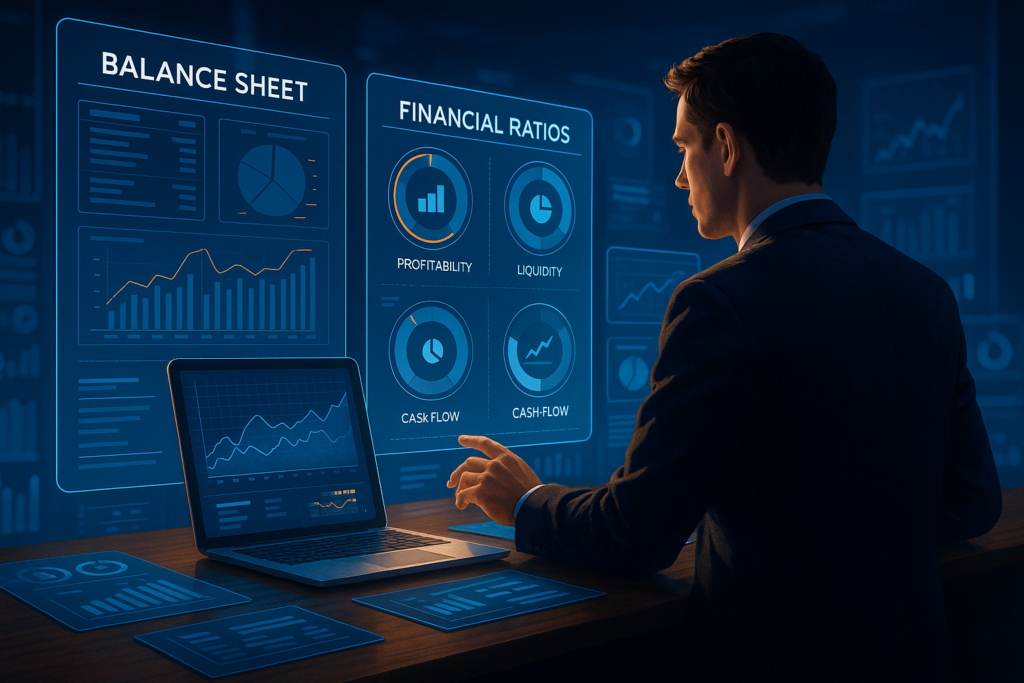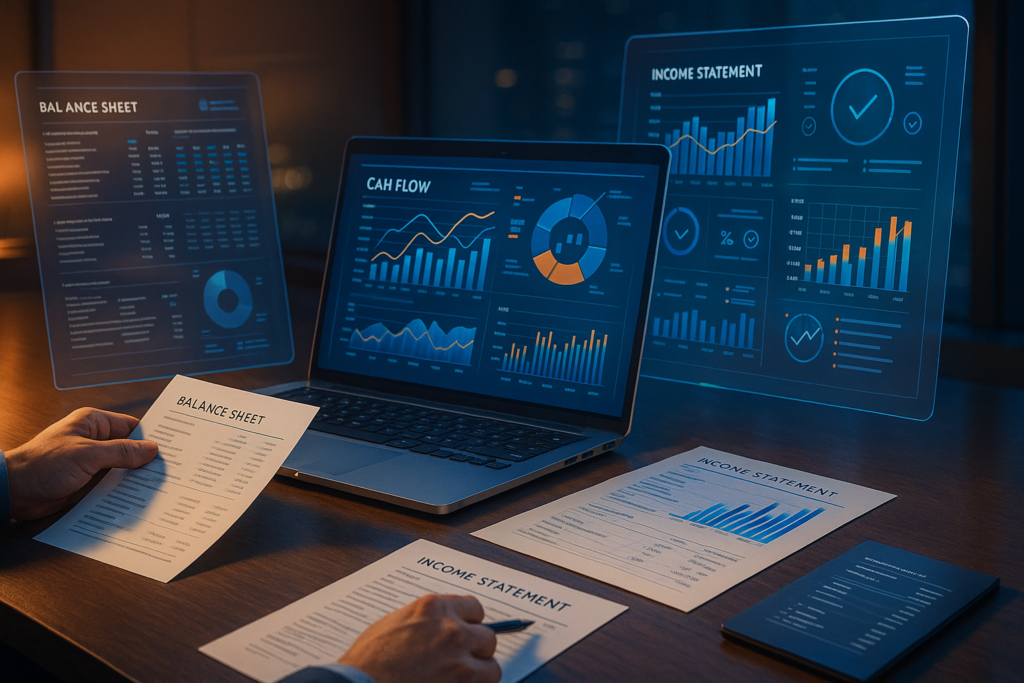The Impact of Digitization and Digital Transformation on the Accounting and Auditing Profession
Introduction
The world is witnessing a profound transformation in all fields thanks to digital technology, and the accounting and auditing profession is no exception.
From paper-based ledgers and manual calculations, accountants have moved into the age of cloud systems, artificial intelligence, and big data analytics, reshaping the nature of their work and their roles within organizations.
Digital transformation is no longer a luxury — it has become a strategic necessity for companies that aim to survive and grow in a rapidly changing environment. This transformation has created new opportunities for accountants but also brought challenges that require the development of new skills and competencies.
1. What Is Digitization and Digital Transformation in Accounting?
-
Digitization: The process of converting paper-based information into digital form that can be stored and processed electronically.
-
Digital Transformation: Goes beyond mere digitization — it involves redesigning financial and accounting processes entirely through modern technologies to enhance efficiency, transparency, and decision-making speed.
In simple terms, digitization is the first step, while digital transformation represents a complete redefinition of how accounting is practiced.
2. Technologies That Have Transformed Accounting
-
Artificial Intelligence (AI) and Machine Learning:
AI is now used to automate data entry, detect errors, and predict future cash flows with remarkable accuracy. -
Cloud Computing:
Enables businesses to access financial data anytime, anywhere, and promotes seamless collaboration between accountants, auditors, and management teams. -
Big Data Analytics:
Allows accountants to analyze massive amounts of data to uncover patterns, insights, and performance indicators that were previously invisible. -
Blockchain Technology:
Provides unparalleled transparency and security in recording financial transactions, revolutionizing auditing and assurance processes. -
Robotic Process Automation (RPA):
Software robots can now handle repetitive tasks like reconciliations and invoice processing faster and more accurately than humans.
3. Benefits of Digital Transformation in Accounting and Auditing
-
Operational Efficiency:
Automating repetitive tasks saves time and resources, allowing accountants to focus on analysis and strategic decision-making. -
Data Accuracy:
Digital systems minimize human error and provide real-time, traceable, and error-free records. -
Transparency and Credibility:
Digital processes enhance traceability and reduce the risk of fraud or manipulation. -
Predictive Analysis and Smart Decisions:
AI tools allow companies to predict risks before they occur and plan their financial strategies with precision.
4. Challenges Facing the Profession in the Digital Era
-
Lack of Digital Skills:
Many traditional accountants lack digital literacy in data analytics, automation, or cloud tools. -
Cybersecurity Risks:
With greater reliance on digital systems comes the risk of data breaches, making data security a top priority. -
Cost of Transformation:
Transitioning to digital systems requires significant investment in technology and staff training. -
Changing Job Roles:
The accountant’s role has shifted from data entry to strategic advisory, requiring continuous learning and adaptation.
5. The Future of Accounting in the Age of Digital Transformation
The profession is expected to undergo dramatic change in the coming years:
-
AI will handle most routine tasks.
-
Accountants will act as strategic advisors offering analytical insights rather than just reports.
-
Predictive analytics will drive decision-making across all departments.
-
Auditing will evolve into real-time digital auditing, using live data instead of periodic reviews.
6. How Accountants Can Prepare for the Future
-
Develop Digital Skills:
Learn cloud-based accounting software, data analytics tools, and gain a basic understanding of AI. -
Continuous Learning:
Attend workshops, professional training, and stay updated on IFRS and digital finance trends. -
Focus on Analytical Value:
The future accountant must interpret and explain numbers — not just record them. -
Collaborate with IT Teams:
Integration between accounting and technology departments is essential for successful digital transformation.
Conclusion
Digitization and digital transformation have not only changed the tools accountants use — they have redefined the profession itself.
The modern accountant is no longer a “number keeper” but a strategic advisor who leverages data and technology to guide financial decisions.
Those who embrace this change will lead the future of the profession.
Those who resist it risk being left behind in the analog past.



